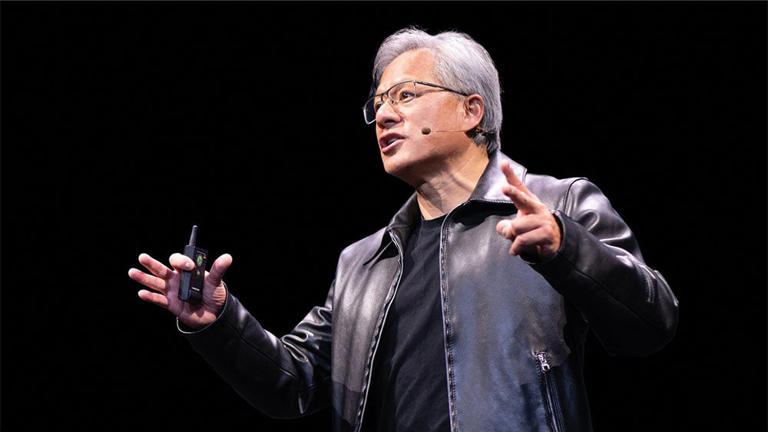Nvidia CEO Jensen Huang’s recent announcements regarding the company’s plans for new artificial intelligence (AI) accelerator chips have drawn significant attention within the tech industry. During his speech on the eve of Taiwan’s Computex 2024, Huang unveiled Nvidia’s roadmap, which includes the introduction of the Blackwell Ultra chips in 2025 and a new Rubin platform in 2026. This departure from Nvidia’s previous biennial chip release schedule reflects the company’s commitment to staying at the forefront of AI innovation.
Traditionally, Nvidia has launched new chip platforms every two years, with notable releases like Ampere in 2020 and Hopper in 2022. However, Huang’s decision to transition to an annual release cycle signals a strategic shift aimed at accelerating the pace of technological advancement. This move aligns with Nvidia’s vision of driving AI adoption across diverse industries, where the demand for computational power continues to surge due to the proliferation of data-driven applications.
Huang emphasized the pivotal role of AI chips in addressing the challenges posed by “computation inflation,” a phenomenon where the demand for computational resources outpaces Moore’s Law. By developing cutting-edge AI hardware solutions, Nvidia aims to empower businesses to harness the full potential of AI technologies and gain a competitive edge in today’s data-driven economy.
Beyond unveiling new chip architectures, Huang also highlighted the transformative impact of AI tools in various domains. For instance, he discussed how AI-powered weather modeling can enhance forecast accuracy, enabling better preparation for extreme weather events. Additionally, Huang emphasized the role of AI in optimizing factory productivity, showcasing Nvidia’s commitment to leveraging AI to drive innovation across diverse sectors.
Following Huang’s announcements, AMD CEO Lisa Su took the stage at Computex to outline AMD’s AI roadmap. Su’s presentation underscored AMD’s commitment to delivering cutting-edge AI solutions, including the MI325X accelerator for data centers and the Ryzen AI 300 series for mobile devices. By offering a comprehensive portfolio of AI processors, AMD aims to meet the evolving demands of AI-driven applications and provide customers with best-in-class performance and efficiency.
As the technology landscape continues to evolve, industry stakeholders are closely monitoring developments in the semiconductor sector. Key players like Nvidia, AMD, Intel, Qualcomm, and others are poised to shape the future of AI-driven innovation, with advancements in AI hardware enabling breakthroughs in areas such as autonomous vehicles, healthcare, and cybersecurity.
In conclusion, Nvidia’s bold vision for the future of AI hardware, as articulated by CEO Jensen Huang, reflects the company’s commitment to driving technological innovation and advancing the state of AI across industries. With new chip architectures on the horizon and a renewed focus on annual releases, Nvidia is poised to maintain its position as a leader in the AI hardware market, driving growth and unlocking new opportunities for customers worldwide.
